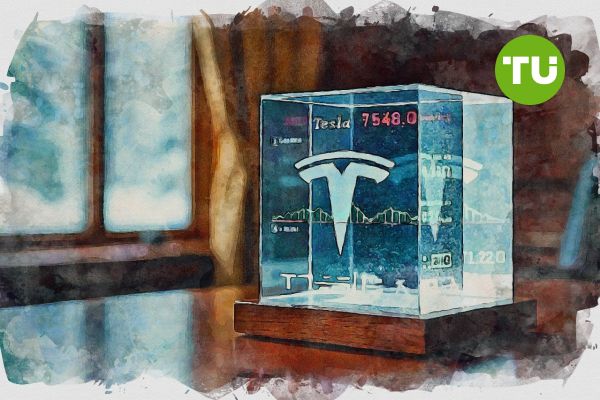Tesla stock slips to $342 as new Chinese rival emerges
 The recent price weakness is also influenced by rising competitive pressure in China
The recent price weakness is also influenced by rising competitive pressure in China
As of May 20, Tesla stock is trading at $342.09, down 2.25% in the past 24 hours. This correction ends a four-week rally during which Tesla (NASDAQ: TSLA) gained over 45%.
Highlights
• Tesla's recent rally has paused as technical indicators point to overbought conditions and a potential short-term pullback.
• Rising competition in China, particularly from Xiaomi's upcoming YU7 SUV, adds pressure to Tesla’s Model Y market share.
• Investors should watch the $289–$271 support zone for possible entry points amid expected consolidation.
Tesla’s strong rally through late April and early May was underpinned by bullish sentiment and renewed investor confidence in Elon Musk’s leadership. However, the recent correction suggests the momentum may be faltering. The stock has started to flash technical signals indicating a potential short-term pullback or consolidation phase.
The Relative Strength Index (RSI) currently sits above the 70 mark, a level commonly associated with overbought conditions. Historically, when Tesla’s RSI reaches this threshold, a temporary retreat or sideways movement tends to follow. The stock also recently pushed above the upper Bollinger Band, signaling that price levels had become stretched relative to recent volatility. This kind of technical breakout often precedes a cooling-off period as traders take profits and reassess risk.
TSLA stock price dynamics (March 2025 - May 2025). Source: TradingView.
Support levels now form near $289, which aligns with the neckline of a previously established triple-bottom pattern. This level is likely to attract technical buyers if the stock dips again. A more significant floor lies at $271, close to the 50-day moving average—a key trendline that has held as support during past rallies. On the upside, resistance is expected around $375, followed by a longer-term cap near $430, and then the critical $488 mark, representing the 52-week high.
Market context: China competition and investor psychology
The recent price weakness is also influenced by rising competitive pressure in China, one of Tesla’s most crucial markets. Xiaomi, a consumer electronics giant, is set to launch the YU7 electric SUV on Thursday. This model directly targets the same demographic as Tesla’s Model Y and enters the Chinese market at a time when Tesla’s local sales are already facing headwinds from price wars and brand fatigue.
Investors are keenly watching how Tesla responds to this challenge, especially given the company’s recent pricing adjustments aimed at maintaining its market share in China. While Elon Musk’s renewed focus on Tesla after resolving leadership uncertainties with X and SpaceX was initially well-received, market participants are now looking for concrete signs of product innovation or margin stability to sustain the stock’s valuation.
Despite these headwinds, broader market conditions remain favorable. Cooling inflation data in the U.S. and anticipation of interest rate cuts in the second half of the year have supported tech equities, including Tesla. The electric vehicle sector in particular could benefit from regulatory incentives and ongoing shifts toward decarbonization, though competition and consumer demand in key regions like China and Europe remain variable.
Short-term consolidation with bullish potential
Given the recent overextension and the arrival of new competition, Tesla’s share price is likely to enter a consolidation phase in the short term. The next few sessions may see a retest of the $289 support level, with the possibility of a further decline to $271 if selling pressure intensifies. These levels offer potential re-entry points for technical traders and long-term investors alike.
Should the stock manage to stabilize and regain bullish momentum, a breakout above $375 could reopen the path toward $430 and possibly retest the $488 highs later in the quarter, especially if Tesla delivers strong sales numbers or surprises with new product announcements.
Despite Tesla's recent price surge, market sentiment is mixed following news that billionaire investor Ron Baron sold around $600 million in shares. Baron's move reflects concerns over Elon Musk's increasing political involvement, which is raising investor caution.













































































































































